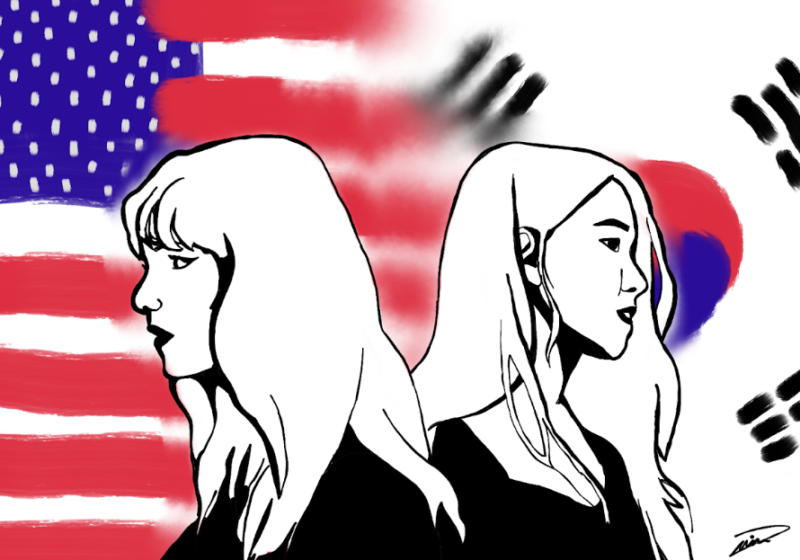“La Belle Personne” is boring. And I love it. The 2008 French film from Christophe Honoré features extremely muted and washed-out colors, a relatively uneventful plotline, and borderline lifeless performances from the main characters — all of which are what give the film its unparalleled charm.
The film follows Junie, a young French woman who transfers schools after her mother’s tragic death. Junie eventually starts dating Otto, a loyal and tenderhearted fellow student. However, Junie’s true feelings are for her young and brooding Italian language teacher, Nemours, who feverishly reciprocates the infatuation. Seam-bursting tension slowly builds as Junie juggles her desire for safety with the loyal Otto and the overwhelming allure of the dangerous and flirtatious Nemours.
If this storyline sounds canned and unoriginal, that’s because it is. The understated beauty of “La Belle Personne” comes not from its extremely unique plot, but rather its stylistic and conceptual elements. Of course, the film is visually pretty drab. Each scene has such a grey hue to it that an editor must have purposely and vigorously de-saturated every single shot.
The dominating colors in each of these shots are a vibrant black, grey, white, and beige, making for a melancholic and defeatist atmosphere. While one could easily view this lack of vibrancy as draining (even more so than a purely black and white format), I would argue that it makes for a beautifully unconventional cinematic experience.
Far too often, especially in modern Hollywood, movies force-feed us a sensory overload of stunning imagery and brilliant color palettes, overwhelming us with stimulation. “La Belle Personne” does the exact opposite.
There are no artificial mental fireworks invoked by the visuals, and the viewer must therefore sit with themselves for an hour and a half, immersed in the gloomy world of “La Belle Personne,” reflecting on what the piece personally means to them and how it genuinely makes them feel.
Aside from a few major plot points, nothing terribly remarkable happens in “La Belle Personne.” This slow burn feel is a refreshing change of pace from action-packed movies, facilitating a calm viewing experience rather than an edge-of-your-seat experience.
You can’t go into this film expecting rollercoaster adrenaline — it’s more like a lazy river under grey skies where the water is slightly too cold. But if you relax, your body temperature adjusts and you can sit back and just enjoy the ride.
It is also worth noting that Junie’s and Nemours’ acting performances are highly reserved and expressionless. Although this may initially come across as lackluster, stoicism is a pillar of these characters’ almost vampiric auras. It fosters a mysterious atmosphere around them and allows viewers more room to interpret what might be going on inside their heads.
While I wouldn’t recommend making a main character that commits infidelity with her teacher your role-model, I think there’s a lot to be learned from “La Belle Personne” It teaches us how to see and appreciate the beauty in some of the more mundane and slow-paced aspects of our lives.
Although our current world may be both literally and figuratively on fire, it’s no secret that campus life in and of itself is considerably duller than usual. With no parties to attend (if you’re still going to parties, please please please stop, I beg of you), most classes online, and the majority of clubs limited to Zoom meetings, waking up every day might feel a bit more tedious.
However, just like “La Belle Personne” has shown us, it’s important to appreciate your environment for what it is, even if it’s not constantly blowing up your dopamine receptors with sensory stimulation.
This is not to say that COVID-19 times have not caused devastating losses — they obviously have — but in terms of campus life, sometimes it’s not so horrible for things to be slow-paced, as it allows space for reflection and being present.
Even Rochester’s grey skies, while mostly dreadful, can be appreciated every now and then. I certainly wouldn’t want to stay in this restrictive environment forever, and I wouldn’t want every film to look and feel like “La Belle Personne,” but it’s important to appreciate this time for what it is.



